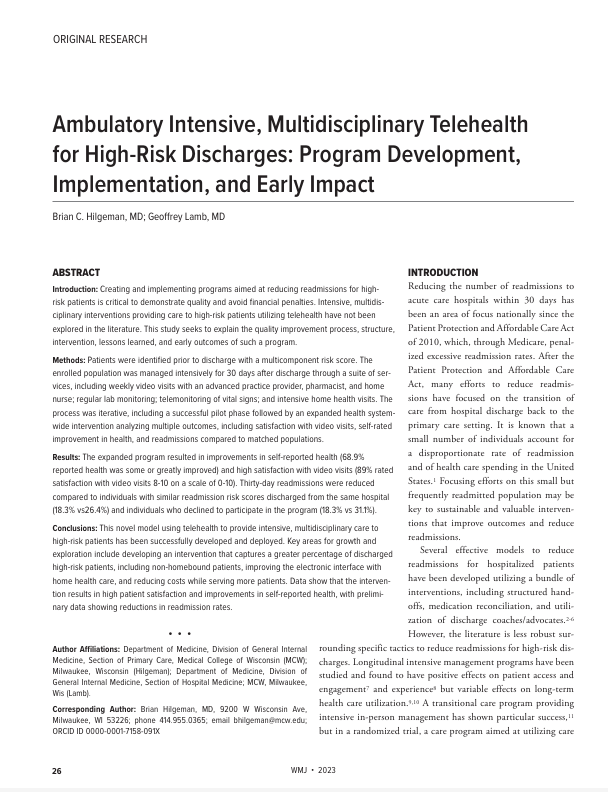Headline
Telehealth-enabled hospital discharge care program using a multidisciplinary team reduces 30-day readmissions.
Background
Telehealth offers potential to extend the capacity of the health care workforce and improve care coordination, particularly when used by multidisciplinary care teams that have otherwise been shown to improve outcomes for people with complex health and social needs. This study evaluated the impact of a telehealth-enabled transitional care program for high-risk patients following hospital discharge.
Findings
Patients identified as having a high risk of readmission were enrolled in a telehealth-based hospital discharge care program. The program included weekly video visits with an advanced practice provider and pharmacist and a home health nurse, vital sign telemonitoring, home laboratory testing, and intensive home health visits for 30 days post-discharge. Among 191 program participants, enrollment was associated with lower 30-day readmission rates compared to eligible patients who declined participation (18% vs 31%) and to a comparison group with similar readmission risk scores (18% vs 26%). Additionally, 69% of participants reported improved health status and 89% rated satisfaction with video visits as 8-10 on a 10-point scale.
Policy/Program Takeaways
This study demonstrated promising results for the effectiveness of intensive telehealth-based transitional care for high-risk patients following hospitalization. Health care providers can consider this multidisciplinary telehealth approach when designing similar programs in their communities. Policymakers and health plans may consider additional opportunities to reimburse for or incentivize similar telehealth interventions that provide comprehensive post-discharge support.

